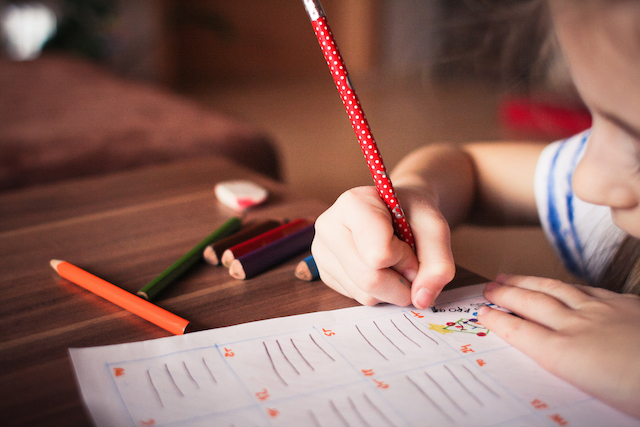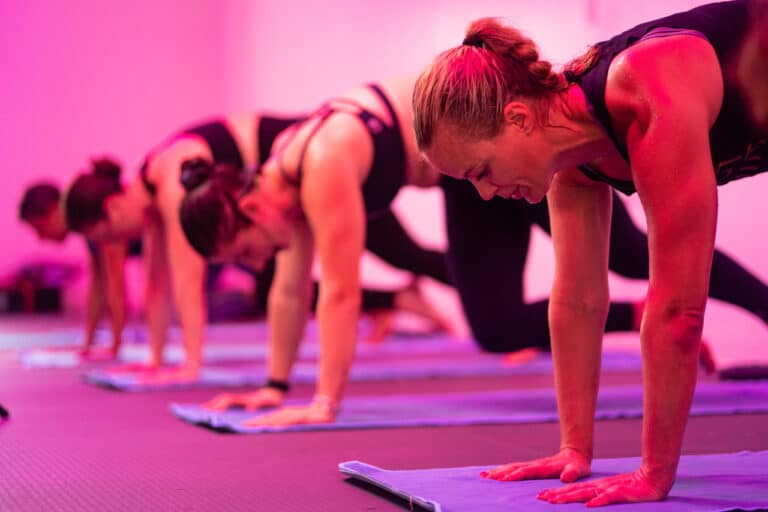It’s normal for kids to experience anxiety from time to time—but school administrators and physiologists are noticing an increased number of kids being affected, and for longer durations. We spoke with experts to see what’s going on, and how parents and schools can help.
What is anxiety?
Anxiety can range from a general sense of agitation or avoidance (of a feared object or situation) to a full-blown panic attack. “Repeated bouts of high levels of anxiety can result in students avoiding tasks that create anxiety, thus creating a cycle of avoidance and apprehension that can leave a child feeling helpless and hopeless,” says Tammy Moscrip, PhD, LCSW, Executive Director/Chief Administrator at The Spire School in Stamford, CT. She notes that the depression that can follow only worsens the condition and students can further spiral as they become apathetic and withdraw from prior sources of interest, passion, or pride. “Anxiety leaves students desperately seeking a sense of security, power or control and this can result in self-harm tendencies, unhealthy eating patterns, insomnia, substance use and abuse, and a variety of maladaptive coping mechanisms,” she says.
What is causing this anxiety?
There seems to be a variety of factors contributing to increased levels of anxiety in schools. Dr. Moscrip says a few to consider include: increased pressures to perform well across multiple domains (not just in the classroom, but in areas like athletic pursuits and community service); around-the-clock social media exposure (good or bad, it can be thoroughly consuming); and increased protection/apprehension of parents who serve to shield children from setback and failure, and despite loving intentions, create a cycle of anxiety and avoidance.
What’s the connection between social media and anxiety?
“Students are no longer going home and shutting off social dynamics as they were able to in years past,” says Jenny Britt, Special Assistance in Learning Coordinator at the Whitby School in Greenwich, CT. Social pressures can continue long after the school day ends. “Students are no longer able to take a break when they get home as they continue their chats on social media and their smartphones.”
Are parents creating anxiety?
“As a parent, I try to make a conscious effort to not have my fears and concerns be those of my children, and to promote healthy risk-taking,” says Dr. Moscrip. She explains that just as our children are susceptible to peer pressure, there’s pressure on parents to be “perfect.” As such, parents may try to overprotect. “It is natural for us to want to prevent as much frustration, humiliation, and emotional/physical pain as possible for our children. Of course, it pains us to see them upset or to fail. But too much rescuing, too much sheltering, too much fussing over their needs ultimately communicates to our children that we don’t trust that they can become independently-functioning adolescents and young adults without our meddling,” she explains. Essentially our goal as parents is “failure inoculation,” or providing opportunities for small failures/setbacks. As a result, children learn to manage without mom or dad removing obstacles or fixing the situation for them.
How does anxiety affect kids’ academic performance?
“Students with high anxiety learn to fear failure, which translates into a fear of change, challenge, or setback—everyday aspects of life. Essentially, the anxiety can become paralyzing to the point that straight-A students with perfect attendance can transform into below average students who cannot possibly bring themselves to set foot inside their schools,” says Dr. Moscrip. She explains that thoughts of “If I don’t try, I can’t fail” or “People will expect too much of me if I succeed, and I don’t want to disappoint” may lead anxious students to avoid academic risks, and become apathetic or entirely withdraw from activities they once enjoyed.
Can parents help kids feel less anxious?
Parents should consider these questions: how healthy are sleeping, eating/hydrating, and exercising habits? “Oftentimes our teens have poor quality sleep, not enough sleep, or persistent insomnia. This lack of sleep can impact everything from cognitive clarity and energy levels to distress tolerance and emotional regulation,” notes Dr. Moscrip. So, too, inadequate or insufficient nutrition and hydration can have a dramatic negative impact on mood and cognitive performance. Good nutrition (less processed food and sugary drinks), drinking water and getting exercise is a good start.
Can kids learn to create order from chaos?
It’s helpful to have students learn strategies such as mindfulness to teach them to recognize their triggers in stressful and anxious moments. Lovett notes that practicing mindfulness—whether deep breathing, journaling, or walking—is important when kids first start to feel anxious. “They can practice these strategies before they get flooded with overwhelming feelings,” says Britt. She also notes that if your household has a busy schedule, parents should plan ahead by creating a calendar so kids are aware of what is expected of them.
What are other strategies to help kids?
Joseph Pietrafeso, School Counselor at Greenwich Catholic School, has a number of tips for kids dealing with anxiety. Helping them be aware of their own anxiety and recognizing triggers is a smart first step, followed by modeling self-regulation and the ability to stay calm in stressful situations. “Parents should validate their children’s feelings,” he adds. Plus, parents shouldn’t be afraid to get children individual counseling to help them develop coping strategies.
How can parents help kids find a tribe?
It’s important for kids to feel like they belong to a community. If they love art, music or sports, make sure they are involved in these activities. “We all need to feel like we’re part of a tribe, a community of like-minded individuals who help us feel good about ourselves and our contributions to the broader society. Building confidence and enthusiasm and social connectedness gives our children the self-esteem to tackle areas of challenge and to risk failure,” says Dr. Moscrip.




